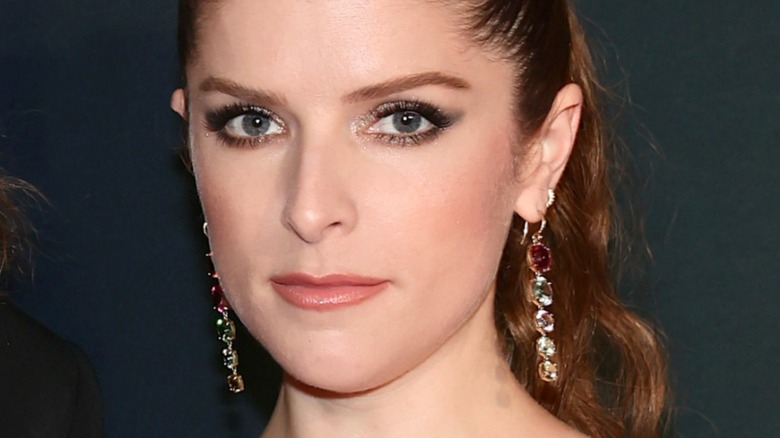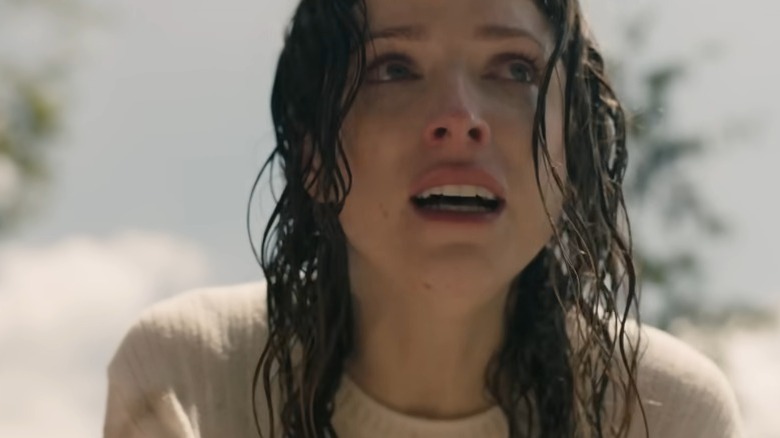Anna Kendrick Loves That Alice, Darling Challenged Her To Play Someone You Don't Immediately Love
In the decade and a half since she broke out with her supporting turn as Jessica Stanley in the "Twilight" franchise, Anna Kendrick has become one of those movie stars whose personal brand is pretty much as strong as her acting performances proper. Over the years, audiences have gotten used to a certain Kendrick persona; many of the American actress' most visible roles find her playing bright, perky young women whose demeanor alternates between amiable sweetness and quiet, contemplative reserve. The list of examples of said persona is numerous: There's her Oscar-nominated work in "Up in the Air" as an ambitious yet naive HR consultant; her turn as a therapist in the process of learning the ropes in "50/50;" her charismatic comedic performances in "Happy Christmas" and "Mike and Dave Need Wedding Dates;" her droll takes on Cinderella in "Into the Woods" and Santa Claus' daughter in "Noelle."
Kendrick's most recent film role, however, finds her taking a significantly darker and thornier path than some viewers may be used to seeing. In Mary Nighy's "Alice, Darling," Kendrick plays Alice, a successful, seemingly happy woman who begins a quiet struggle to break free from the sway of her psychologically abusive boyfriend Simon (Charlie Carrick). The film has been noted by critics as an opportunity for Kendrick to demonstrate more of her range as an actor — and Kendrick herself has revealed that the role's challenges, including its lack of traditional likability, were deeply compelling to her.
Alice, Darling finds Anna Kendrick gunning for psychological acuity
Anna Kendrick sat down with Sean Evans for the latest episode of First We Feast's "Hot Ones," in which she endured the typical escalation of spicier and spicier chicken wings while answering myriad questions about her career. Early on in the episode, while broaching the subject of "Alice, Darling," Evans asked Kendrick about the challenge of playing someone who, unlike the typical Kendrick character, might not get viewers to fall in love with her so easily and instantly.
Kendrick fessed up to historically being more comfortable and motivated when playing characters who have some sort of prominent likable element, whether by being charismatic, charming, or humorous. And, for that very reason, she also expressed her enthusiasm at "the idea of playing a character who is kind of a bummer — she's not that fun to be around — and [seeing] if it works as a performance and if people will stick around to end up rooting for Alice."
The actress added that the realistically raw and unvarnished depiction of Alice as a woman coping erratically with abuse was crucial to the psychological and narrative complexity of "Alice, Darling." "I think it's important that the movie starts with you not really clear on who's the good guy and who's the bad guy, because there were times in your life where you're not sure ... It's almost like a mystery film, where you're unfolding what's actually happening to this person," Kendrick said.

